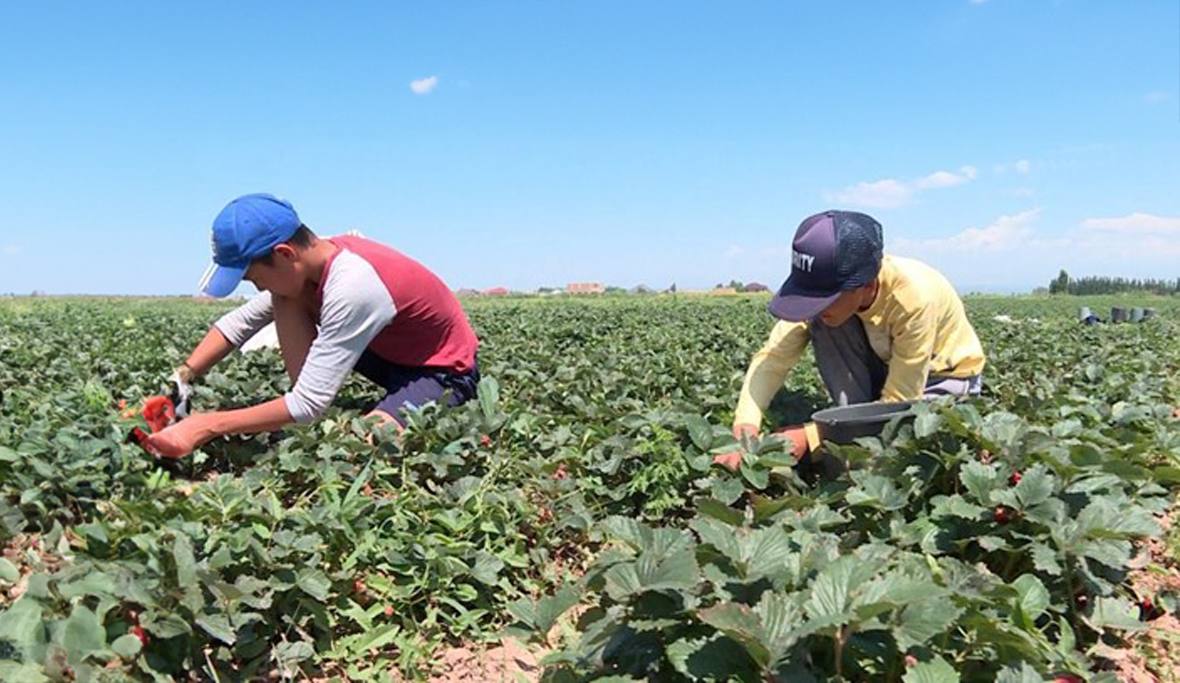World Food Safety Day, commemorated around the world on 7 June 2024, underscores the importance of advances made in this field to help countries prepare for the unexpected in food safety, and ensure the safety of food and consumers. Effective food control systems rely upon the ability of regulatory bodies and laboratories in countries to implement robust sampling schemes and methods of analysis, ensuring the safety and quality of food commodities. Thanks to the support of the IAEA in cooperation with the Food and Agricultural Organization of the United Nations (FAO) through the Joint FAO/IAEA Centre, The Laboratory Testing Center Department of Disease Prevention and State Sanitary and Epidemiological Supervision (DPZiGSEN), in Kyrgyzstan’s Ministry of Health, was able to significantly improve its food safety testing reference status.
The IAEA and FAO supported training of personnel and helped establish state-of-the-art equipment, enhancing the laboratory’s capacity and enabling antimicrobial residues to be tested in a wide range of foods for the first time. Such residues can pose significant health risks and can hinder trade, highlighting the necessity for regular testing and vigilant monitoring. The laboratory has now been awarded the status of a reference laboratory for antimicrobial residues in food products by the Kyrgyzstan’s Ministry of Health. In February 2024, the laboratory completed the process for ISO 17025 accreditation, demonstrating its commitment to maintaining international standards in testing and calibration. The country has also contributed valuable antimicrobial resistance (AMR) data to the World Health Organization (WHO)'s Global Antimicrobial Resistance and Use Surveillance System for the first time, a significant step towards global collaborative efforts to standardize AMR control. “The main goal of the reference laboratory in Kyrgyzstan is to ensure it leads a network of specialized laboratories to produce accurate, reliable and comparable laboratory results on AMR and residues of the antimicrobials in food products. Support received under the IAEAproject is enabling the laboratory to meet its obligations to the country”, says Aigul Dzhumakanova, Head of the Laboratory Testing centre, Kyrgzstan.
The laboratory has begun work on a programme designed to contain antimicrobial resistance in the country which will run from 2022-2025, with the endorsement of the Ministry of Health and the Ministry of Agriculture of Kyrgyzstan.
“The laboratory must therefore develop and maintain a high level of competence and reliability to address country requirements and we are very grateful for the support received from the FAO and IAEA”, adds Dzhumakanova.
Over the past two-years, DPZiGSEN has made substantial progress, introducing advanced tests for antimicrobials in food and expanding its scope of laboratory analyses. This progress was achieved thanks to the technical support of the Joint FAO/IAEA Centre and the provision of the necessary equipment for screening a wide range of chemical hazards (based on a radioreceptor assay analyzer and radio C-14 and H-3 radiotracers), confirmatory instrumentation, as well as the training of eight scientists. Between 2022 and 2023, the laboratory conducted almost 700 tests for chemical residues and introduced 4 new tests for antimicrobials in food, demonstrating how the laboratory's effectiveness and efficiency have expanded. Additionally, with the support of an IAEA technical cooperation project led by the Joint FAO/IAEA Centre, the laboratory was able to establish and implement tests for microbiological hazards in milk, dairy and culinary products including sausages; a range of confectionary products; and soft beverages. The laboratory also tests microbes in water sources. These applications illustrate the laboratory’s new capacity to directly apply the training that has been provided and utilize its new resources.

